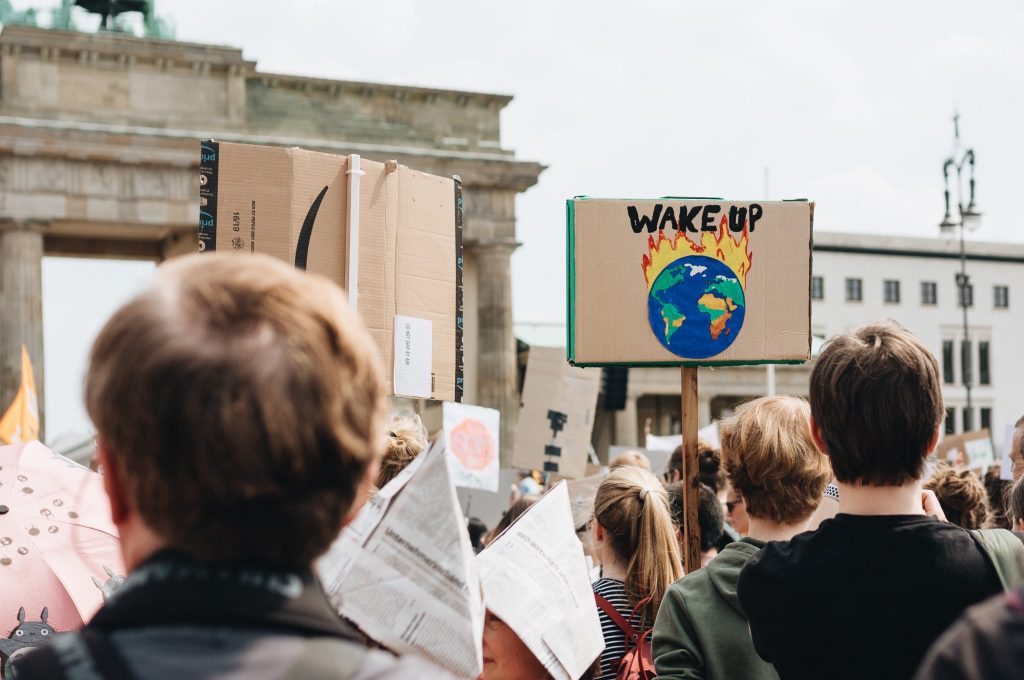Most people are familiar with the story of Galileo, the astronomer who held to a fledgling view that the Earth was not the centre of our universe.
He was hounded, interrogated and then silenced by the Church, only to be proven right as the body of scientific evidence flowed.
His is the standout story in the pernicious myth that science and Christianity don’t get along. So it goes that we Christians are Luddites, preferring to hold tightly to long-held Biblical tales over modern scientific reasoning.
The reality is that for Christians who believe in the intelligent design of the universe, every new scientific discovery reveals more about our creator. Scientific truths help us to better understand the incredible tapestry of the natural world, and our role in it. For Christians, this should only serve to magnify our amazement at our maker.
Right now, the overwhelming body of scientific research shows that our world is warming as the direct result of human action. The modelling of these changes reveals catastrophic consequences for all of creation should this warming go unchecked.

The days of ‘global warming’ being a debatable theory are long behind us; this is a scientific truth.
Since we Christians believe that God created our world in perfect intricacy, since our God instructs us to care for His creation and since we know that we have erred in that mission; this scientific truth of human-led global warming should not surprise us. It sits very comfortably within a Christian view of a world that is broken and in need of renewal.
As the world warms, we cannot afford to be as the Church was to Galileo. We don’t have the luxury of waiting 350 years to apologise for not acting sooner.
Yet still, despite the seeming harmony of scientific, moral and Christian truths in the immediate need to end global warming, I continue to hear three key objections from people of faith:
First and foremost, I hear that we need not worry about global warming because “God is in control of the climate.”
This response sees God, as in the book of Job, commanding storehouses of snow, torrents of rain, and almost mocking the inability of humans to do likewise. Yet from the very same passage we see God delighting in the systems of His creation that water uninhabited lands, feed hungry lions and care for young birds. It is that designed system of creation that God has commissioned us to steward.
Surely it is untenable to suggest that God created the world for us to pillage and deplete it with reckless abandon.
Surely it is untenable to suggest that God created the world for us to pillage and deplete it with reckless abandon. It’s even less justifiable to suggest that God would be pleased, or even indifferent, to our breaking His design. At the very heart of this response we are placing God at our service, the bringer of rain, the reliever of drought, not we at His, stewarding a created world so that all of His creation might thrive.
Second, I am often told that even if we should be more active in caring for the environment “there are bigger issues at hand”.
Having spent the best part of my life campaigning for justice for the homeless, the poor and the oppressed, you may expect me to be an ally in this argument. Far from it. In my 15 years at World Vision Australia it became clear that climate change was impeding our fight against poverty. Around the world our staff would report the same things: longer droughts, flooding rains, reduced harvests. It is the poor who will be impacted first and hardest by climate change; in fact they already are. It is our closest neighbours in the Pacific that will first be displaced by global warming; in fact many already have been.
This is not a dystopian prediction. It is a present reality. By 2017 we had already lost at least seven low-lying Pacific islands to rising sea levels. Earlier this year the President of the Marshall Islands said that “[By] 2030, we’re expected to be underwater. So, it is our livelihood. It is the very existence of the Marshall Islands that’s at stake.” Global warming is not an environmental issue, it is a human injustice.
Every single person will be unable to thrive if global warming remains unchecked.
Even closer to home, nine of the 10 warmest years on record in Australia have happened since 2005. As I write this, some 95 percent of north west NSW is in drought and about 40 bushfires are still burning in Queensland. No matter what issue you care most about in this wonderful nation of ours, every single person, every child born whether in Australia or around our world, will be unable to thrive if global warming remains unchecked.
The third response I hear is that while we may care about koalas or the Great Barrier Reef, climate action is “all about politics”.
Let me be clear, climate action isn’t political, it’s being held hostage by politics and we need to free it. As Christians, we are well positioned to do just that. When it comes to politics, we’re called not to go left or right, but to go deeper into the person of Jesus who eschewed political power and sided with the vulnerable.
To join the ranks of those fighting for climate action is not to say we hold to a political doctrine, but instead to say that whenever called upon we will stand with the poor and the vulnerable.
As Christians we must act to end global warming not just because we are called to care for creation but because we are called to love one another.
The church has come along way since the days of Galileo. On Friday, as hundreds of thousands of people around the world join the Climate Strikes, we have a chance to prove it.
This article first appeared at 10 daily.


